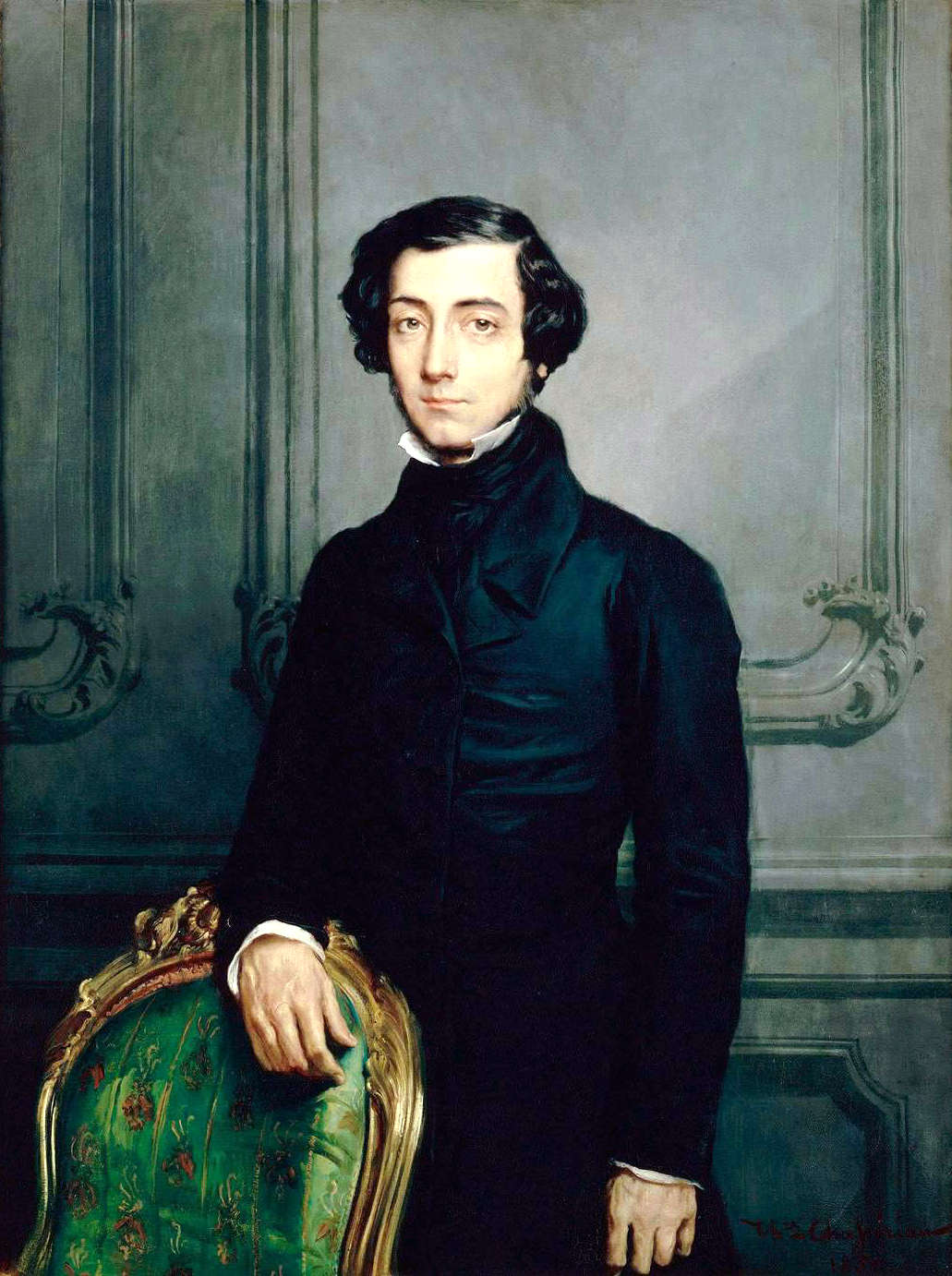Alexis de Tocqueville was a Frenchman who traveled to the newly-formed United States to observe the US experiment of liberal democracy. He continues to be one of the great editorialists of the principles of liberal democracy and its political foundation in the American Republic.
Here are some passages from the book The Closing of the American Mind by Allan Bloom. In these quotes, Bloom lays out the foundations of the dangers of the abuse of public opinion and the resulting pressure to conform based on Alexis de Tocqueville's warnings from 200 years ago.
The great democratic danger, according to Tocqueville, is enslavement to public opinion (page 246).Democracy liberates people from the traditions and authority which were historically powerful. We are no longer told how to think by an aristocracy or a politically potent clergy.
In the absence of anything else to which to turn, the common beliefs of most men are almost always what will determine judgment. This is just where tradition used to be most valuable....The active presence of a tradition in a man's soul gives him a resource against the ephemeral, the kind of resource that only the wise can find simply within themselves. The paradoxical result of the liberation of reason is greater reliance on public opinion for guidance, a weakening of independence (page 247).The problem with public opinion, of course, is its ephemeral nature. No longer stabilized on common values derived, for example, from religion or from the founding documents of the US, public opinion drifts without anchor, evolving into whatever form takes on the greatest popularity of the moment.
Without guiding foundational principles, public opinion can, and does, take sharp socially and politically dangerous turns, causing the whole of the Republic to veer off into uncharted and potentially damaging directions.
Take, for example, the current congressional attempt to pass a massive health care overhaul bill despite the lack of public support and despite the inherent flaws with such a massive bill. Weighed against the founding principles of the US - especially the idea that government is dangerous and therefore should be limited - there is little foundational support for such massive government intrusion into the daily lives of its citizens. Instead, congressional Democrats are swayed by the popular opinion of the "necessity" of government intervention into the health care industry. (And, of course, drawn to the extension of power and its abuse.) Congressional Democrats have unwisely convinced themselves that they know better than the founders of the US, that they know better than the people of the US (especially those pesky Tea Party independents), and so they run with the concept of socialized health care, cheered on by a president whose ideology matches a small minority of the population.
We are left with a society at the whim of the public mind, with indiscriminate opinions, and quite unable to choose between what is helpful to the Republic and its people and what is harmful and statist - serving only the needs of the government.
Which reminds me of a quote that sums up Americans' inability to correctly view and understand the dangers of the liberal mind:
The modern man forgets the past, and finds himself at the mercy of technocrats, propagandists, and snake-oil salesmen. The postmodern man is no longer aware that he has any past to forget. To remember and honor the hard-won achievements of our civilization is to have a fair chance of freedom; to forget them or despise them is to have no chance at all. (Esolen, The Politically Incorrect Guide to Western Civilization, p. 293)

0 comments:
Post a Comment